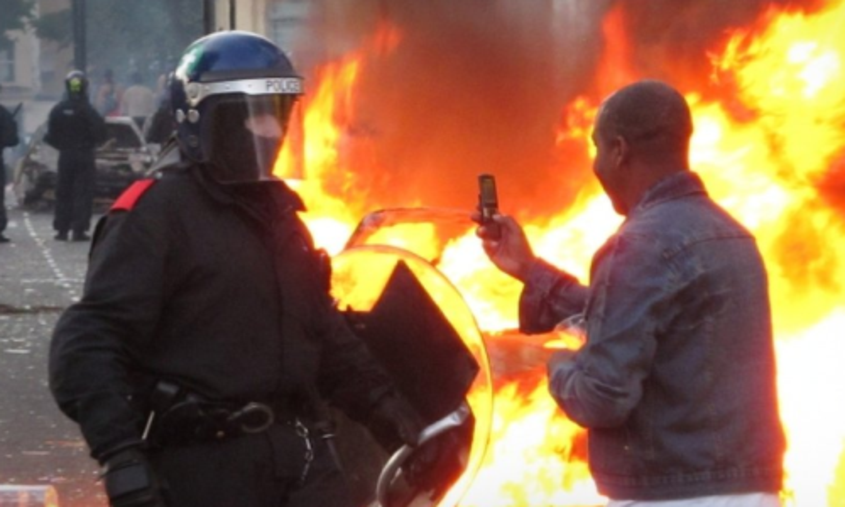Should social media be banned during riots? close

Wow. Only a few months ago, Karine wrote an article about how for the first time social media had allowed people a taste of freedom during recent uprisings in places like Egypt and Libya.
And here we are wondering whether social media is a menace as it appeared to be so central to the recent riots and looting in the UK. As David Cameron told the Commons:
“When people are using social media for violence we need to stop them”
As we all know, Twitter and Blackberry Messaging appears to have been widely used to organise and even incite groups of rioters firstly in London and then further afield to other cities in the UK. With this in mind, should the authorities somehow shut down access to these services if a similar thing happened again?
Is it practically possible to shut down ‘social media’?
Yes and no. In the UK it would be disastrous for the government to completely shut down all internet traffic because so much business now relies on it and frankly it would be ridiculous. So they would have to lean on ISPs and people like RIM who own Blackberry Messenger to block specific sites and applications.
Is it right to do so?
It’s part of the human condition to want to explain things in a simple way. As designers and information architects, a lot of what we do is about organising content to make it easy for people to assimilate. Nobody has the time or inclination to go through a list of pages to work out which ones they might want to read, instead they rely on visual signposts and grouping of content.
In explaining why so many (mainly) young people took to the streets, destroyed buildings and helped themselves to other’s property, the same thing applies. It’s variously been concluded that bits of society are simply “sick” or they are just greedy opportunists, or that the corruption shown by politicians has somehow given them a sense that if you can get away with it, then it’s OK. Others have said they were just bored or having a laugh or simply swept up in a tide of excitement fuelled by social media.
It’s all too easy to say that one thing is the problem and so much harder to say in a headline or a soundbite that lots of combinations of factors may have been at play. Which is partly why I think that shutting down “social media” however that is defined, would probably not have the desired effect and sets a dangerous precedent.
Put it this way, people have been rioting way before social media was invented. In 1985, during the Broadwater riots that culminated in a policeman being hacked to death, there was no pre-digital equivalent of Twitter that galvanized people into action. Social media may make the process easier and faster to disseminate, but it’s people, not technology, that starts riots.
And who is to say what constitutes civil disobedience.? Isn’t one man’s demonstration another man’s riot? The student marches earlier this year and the public sector workers one more recently, were by and large peaceful. But when one moron starts swinging from the Cenotaph or another lobs a fire extinguisher from a roof, should that trigger an instant shut-down of social media?
There’s another thing, too that goes back to the unrest in Egypt and Libya. When protestors were using social media to communicate with people, we in the democratic West were shaking our heads in horror that any government would be so scared of the will of the people that they would be prepared to shut down their right to communicate with each other online. We start shutting down social media in the UK, for whatever justification, we lose that moral high ground.
From the printing press to the internet, every time any advancement in communications is invented, the people tasked with ruling us get twitchy. They feel the need to control and restrict it. But I don’t think it’s down to the people we elect to decide how or with whom we communicate. Of course this makes things harder for the authorities, but so it should be: having the freedoms we enjoy have been hard-won and we shouldn’t give anyone who wants to take them from us an easy ride.